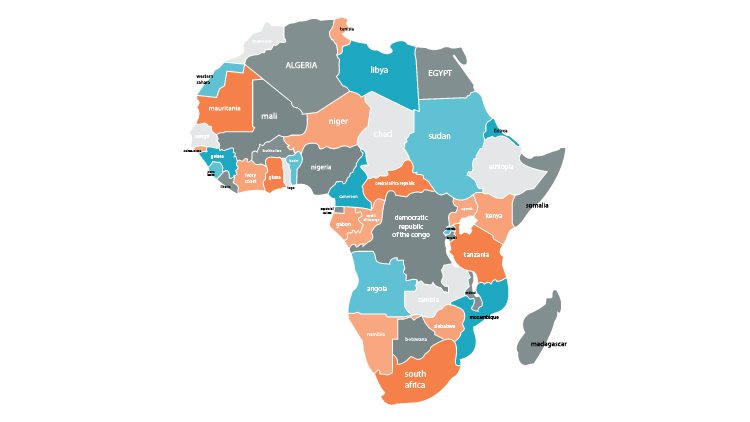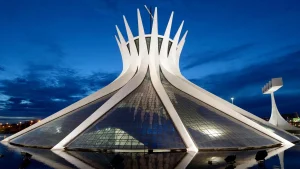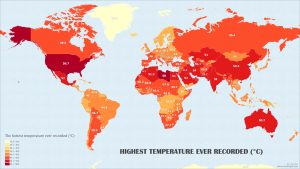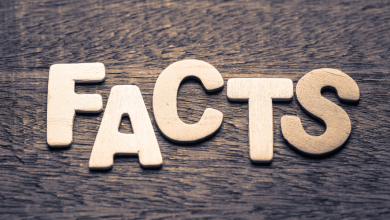
Africa, the second largest and most populous continent, is home to a diverse array of languages that reflect its rich cultural heritage. With over 2,000 languages spoken across its 54 countries, Africa is a linguistic treasure trove. In this article, we will explore the 10 most spoken languages in Africa, shedding light on their prevalence and significance in different communities.
Swahili: The Language of East Africa
Swahili, also known as Kiswahili, is the most widely spoken African language. With approximately 150 million speakers, it dominates the African Great Lakes region, encompassing countries like Uganda, Rwanda, Mozambique, Burundi, and the Democratic Republic of Congo. Swahili has a fascinating history as a trade language, facilitating communication between populations in Southern and Eastern Africa. Today, it continues to thrive as a vibrant language, attracting learners with its widespread usage and cultural significance.
Arabic: A Language of Influence
Arabic, although not indigenous to Africa, has a significant presence on the continent. Spoken by more than 100 million Africans, it is one of the largest languages in Africa. Arabic serves as an official language in countries like Egypt, Comoros, Djibouti, Chad, Algeria, Mauritania, Morocco, and Libya, primarily concentrated in North Africa. Its influence extends beyond borders, with Arabic being one of the most widely spoken languages globally.
French: A Legacy of Colonization
French, a European language, has made its mark in Africa due to the historical period of colonization. It is spoken in 26 African countries, making it an important language on the continent. Countries like Mauritius, Cote d’Ivoire, Senegal, Sao Tome e Principe, Seychelles, and Guinea have a high percentage of French speakers. With approximately 90 million speakers in Africa, French plays a significant role in education, government, and business.
Hausa: A West African Language
Hausa, one of Nigeria’s official languages, boasts over 50 million speakers across Nigeria, Niger, Benin, Burkina Faso, Cameroon, Togo, Ghana, and Chad. As a member of the Chadic branch of the Afro-Asiatic language family, Hausa has cultural and commercial importance in the West African region. Its accessibility and extensive literature make it a language of choice for international universities.
Yoruba: Nigeria’s Linguistic Heritage
Yoruba, a native language of Nigeria, is spoken by over 30 million people in Benin, Nigeria, Togo, Ghana, Ivory Coast, Liberia, and Sierra Leone. As one of Nigeria’s official languages, Yoruba holds cultural significance and is spoken by the Yoruba ethnic group, the largest ethnic group in Africa. Yoruba has various dialects and contributes to the linguistic diversity of the region.
Oromo: A Horn of Africa Language
Oromo, a Cushitic language, is widely spoken in the Horn of Africa, including Ethiopia, Kenya, Somalia, and Egypt. With approximately 30 million speakers, Oromo has a significant presence in the region. The Oromo people constitute over 40% of the Ethiopian population, making Oromo an essential language for cultural expression and communication.
Igbo: Nigeria’s Indigenous Language
Igbo, one of Nigeria’s official languages, is spoken by over 24 million people, primarily in Nigeria. It also has a presence in Cameroon and Equatorial Guinea. As a member of the Volta-Niger branch of the Niger-Congo language family, Igbo has a rich cultural heritage and is one of the largest ethnic groups in Africa. Its unique dialects and literary traditions make it a fascinating language to explore.
Berber
Berber, also known as the Amazigh languages or Tamazight, boasts over 40 million speakers. A common greeting in Berber is “Azul” meaning “Hello.”
Primarily spoken in North Africa, particularly in Morocco, Algeria, Libya, Tunisia, Mali, Mauritania, Burkino Faso, and the Siwa Oasis of Egypt. Despite facing challenges from Arabic and French in certain regions, Berber has persevered and gained official recognition in Morocco. Tuareg, one of the oldest Berber languages, remains a prominent lingua franca in the Sahara Desert, a tradition spanning centuries.
Berber features a unique verb-subject-object (VSO) sentence structure akin to Arabic and Egyptian, where the verb always precedes the subject, which may pose challenges for learners. For those interested in North African travel or employment, particularly in remote areas, mastering Berber can prove invaluable.
Portuguese
Portuguese, spoken by approximately 30 million people in Africa, remains a significant legacy of colonialism on the continent. A common greeting in Portuguese is “Bom dia,” meaning “Good day.”
It holds official status in Angola, Mozambique, Guinea-Bissau, Cape Verde, and Equatorial Guinea, with Portuguese-speaking communities scattered across Africa. The language serves as a medium for governance and commerce on the continent and is among the official languages of the African Union, akin to the U.N. for Africa.
Proficiency in Portuguese can greatly facilitate travel and employment opportunities throughout Africa, while also granting access to Portugal and Brazil. Notably, it is classified as one of the U.S. Department of State’s critical languages.
Amharic: Ethiopia’s Distinctive Language
Amharic, the second-largest Semitic language in Africa after Arabic, has approximately 25 million native speakers and 3 million emigrants. It is the official language of Ethiopia and has its own alphabet. Amharic has a growing body of literature, including poetry, novels, and journals, contributing to the cultural heritage of Ethiopia.
These are just a few of the many languages spoken across Africa, each with its own unique history, cultural significance, and linguistic features. Africa’s linguistic diversity is a testament to its rich heritage and serves as a reminder of the continent’s vibrant cultural tapestry.
Conclusion
Africa, with its vast linguistic landscape, is home to a multitude of languages that reflect its diverse cultures and histories. The 10 most spoken languages in Africa, including Swahili, Arabic, French, Hausa, Yoruba, Oromo, Igbo, and Amharic, highlight the linguistic richness and cultural diversity of the continent. Each language has its own unique story and contributes to the vibrant tapestry of African languages. Exploring these languages offers a glimpse into the depth and beauty of Africa’s linguistic heritage.





